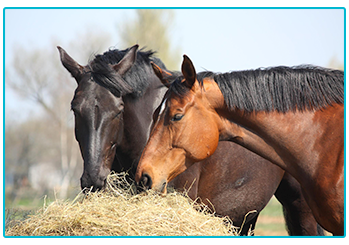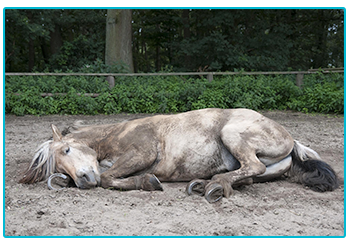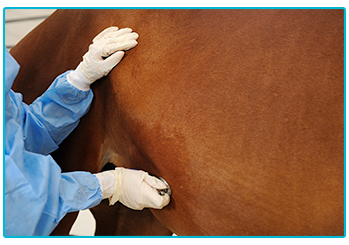This spring there might be nothing better than heading out on an adventure with your horse and making the most of the milder weather. Springtime can be a magical time for you and your horse and the last thing that you want is your equine pal to fall ill. Colic is a common condition that affects many horses and can cause serious discomfort for your steed. Here at The Insurance Emporium, we care about your horse’s health and want to help you spot the signs of colic. Here is our essential guide to this equine illness.

What is colic?
The general definition of the word colic is to mean ‘abdominal pain’. When used in the equine world it is more specifically to describe a condition which is very common in horses and can potentially be deadly. There are many issues that can cause colic, ranging from indigestion to the abdomen becoming twisted or trapped in an abnormal position. Due to the fact that our horses now have a different diet to the one that they evolved on, there can be various problems caused by their food which lead to colic. Equine digestion relies on fermentation and an excess of this can lead to spasmodic, or gas, colic in a horse.

What are the symptoms?
There are so many different forms of colic that it would be difficult to put together an exhaustive list of the types and their symptoms. However, there are some signs that are more common than others. If they are experiencing symptoms of colic, many horses will spend a lot of time lying down or rolling on the ground. Similarly, a lack of appetite could be a sign that your horse is not feeling well. If your equine is seemingly making frequent attempts to urinate, this can be one of the more common signs of colic. It might be worth making yourself familiar with a comprehensive list to help you keep an eye on your horse.
How do you prevent it?
Due to the nature of this illness and the variety of different causes, avoiding the illness completely might be impossible. There are certain things that you can do to decrease the risk however. Ensuring that your horse has a constant supply of fresh water could be a good start. On top of that, a high-fibre diet that consists of at least 60% hay could make a big difference in reducing the risk of colic. However, simply being aware of the signs and symptoms may be the most important thing. Keeping a stethoscope in the barn to listen for abnormal gut noises and a thermometer to check on their temperature could be vital in spotting the signs of colic early.

What should you do?
As with any illness in your equine, the first and most vital step could be to call your vet. Detecting colic early might make a big difference when it comes to a successful outcome. Remember that colic should be treated as an emergency, so acting quickly might make a big difference. Due to their tendency to lie down and roll when suffering, you might also want to make sure that your horse is in a safe area and away from any potential hazards. Remove any sort of food, eating this could exacerbate the symptoms. Finally, and very importantly, keep yourself away from danger. If your horse is restless, your natural instinct may be to calm them but this could put you in danger if they become anxious or start to roll.
Colic is a very unpleasant condition for your horse to suffer. Ensuring that you spot the symptoms and get help as soon as possible could mean that it can be treated effectively and you can resume your adventures as soon as possible! As well as keeping an eye out for colic and other equine illnesses, you may want to have horse insurance in place in case the unforeseen happens.
All content provided on this blog is for informational purposes only. We make no representations as to the accuracy or completeness of any information on this site or found by following any link on this site. We will not be liable for any errors or omissions in this information nor for the availability of this information. We will not be liable for any loss, injury or damage arising from the display or use of this information. This policy is subject to change at any time


